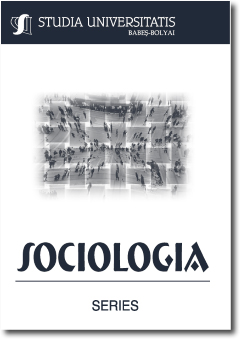SOCIALIZATION OR CONTEXT? PATTERNS OF SUPPORT FOR DEMOCRACY IN SPAIN AND ROMANIA
SOCIALIZATION OR CONTEXT? PATTERNS OF SUPPORT FOR DEMOCRACY IN SPAIN AND ROMANIA
Author(s): Malina Voicu, Edurne Bartolomé-PeralSubject(s): Social Sciences
Published by: Studia Universitatis Babes-Bolyai
Keywords: support for democracy; post-totalitarian transition; age-period-cohort models.
Summary/Abstract: Europe experienced few waves of democratization after World War II, transition to democracy occurring in different social, economic and political contexts. The present paper focuses on the way in which pre-democratic situation and the socio-economic context during democratization influence learning of support for democracy and compares the dynamic of support for democracy in Spain and Romania, during the post-totalitarian period. The two countries belong to different waves of democratization and having a different totalitarian past (fascist for Spain and communist for Romania). Using data provided by Eurobarometer for Spain (1986 -2010) and by Central and Eastern Eurobarometer, Candidate Countries Eurobarometer and Standard Eurobarometer for Romania (1990-2010) we decompose the social change in changes due to cohort replacements and transformation produced by the contextual effects. The results of the cross-classified fixed effects models (CCFEM) indicate strong effects of the socialization under the communist regime and significant contextual effects for both countries on support for democracy .
Journal: Studia Universitatis Babes-Bolyai - Sociologia
- Issue Year: 56/2011
- Issue No: 1
- Page Range: 95-114
- Page Count: 20
- Language: English

